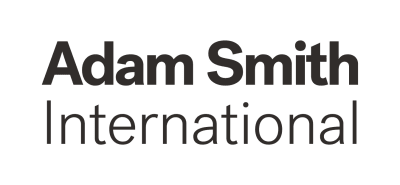
Terms of Reference: Subject Matter Expert for Precursor Chemical Training
- Remote
- Islamabad , Islamabad, Pakistan
- Project Positions
Job description
Duration: 10-day consultancy
JOB CONTEXT
Technical context
UK-Pakistan Serious Crime and Law Enforcement (UPSCALE)-2 programme is an UK Government- funded programme designed to help tackle cross-border crime that undermine the security and prosperity of the UK and Pakistan. This phase of the UK-Pakistan Cooperation on Serious Crime and Law Enforcement will run for 12 months from April 2025 to March 2026. This programme continues our critical mission of enhancing protection for vulnerable communities through improved systems and reduced threats, building upon the remarkable achievements of our previous project phase.
The programme is intended to address cross-border crime across the following thematic areas:
Criminal Justice Cooperation – MLA and Extradition
Mutual Legal Assistance and Extradition: To make the process in Pakistan more effective, efficient, expeditious, and accountable.
Irregular Migration and Organised Immigration Crime
Strengthen detection and targeting of irregular migration via Pakistan airports.
Strengthen community protection and mitigate against diaspora high harm offenders
Sex Offender Management: Fully operationalise an effective and legally compliant sex offender register following Nov 2024 launch.
Online Child Sexual Exploitation and Abuse (OCSEA): Deliver Artificial Intelligence (AI) driven capability to better target OCSEA.
Criminal Record Sharing
The quality of criminal records data transmitted from Pakistan to the UK is prompt, reliable, consistent, and adequate. Pakistan is tracking relevant information.
Countering Narcotics
An enhanced and strengthened system capacity improving the potential to tackle shared narcotics-related threats.
Improved law enforcement cooperation on Illicit Finance
Pakistan systems deliver against FATF commitments and better use illicit finance capacity to disrupt criminal activity, including with UK nexus. The aim of the project is to deliver meaningful and measurable results in the tackling of cross border crime, building systems and institutional capability that provide a sustainable foundation for the operational effectiveness of relevant UK and Pakistan agencies.
WAYS OF WORKING
Project approach
ASI is implementing a problem-driven iterative adaptation (PDIA) approach to system reform. This places a priority on the delivery of results, in line with the project’s theory of change, logical framework and with the agreement of project leadership.
ASI way of working
All associates are required to work in accordance with ASI’s best practice of:
Results-focused problem solving.
Collaborative working to building and maintain great relationships.
Developing and sharing insights, technical knowledge and thought leadership within the project and across ASI.
Contractual and policy compliance
All associates are expected to read and understand the obligations detailed in their contract, including adherence to ASI policies. This includes use of ASI systems for communication and for storage of ongoing and completed project work. Associates should note that over the course of the project they are accountable to ASI and act as ‘ambassadors’ of the company.
KEY RELATIONSHIPS
Internal:
Team leadership and management: Team Leader, Programme Director
Team management: Programme Management Unit
Regional ASI leadership: Head of Pakistan, Head of Pakistan Finance, People & Talent Manager, Operations Manager, Head of Duty of Care.
Other ASI programmes: Pakistan programmes, international programmes working in the same sector.
External:
Clients: Foreign, Commonwealth and Development Office representatives in the British High Commission.
Counterparts: Pakistan and UK agencies operating in the project’s technical space.
Project consortium partners and suppliers.
Other project stakeholders from government, bilateral agencies, multilateral agencies and non-government organisations.
KEY TASKS
Part A: Technical Skills
This role requires deep subject expertise in precursor chemicals and their safe handling, with the ability to translate technical knowledge into practical skills for ANF operational staff. The SME will design and deliver a comprehensive in-person training programme that enhances safety, compliance, and interdiction capacity.
Training design and delivery
Develop and deliver a structured training curriculum on identification, handling, storage, and disposal of precursor chemicals.
Incorporate practical, scenario-based exercises (e.g., simulated lab seizures, chemical fire response).
2. Specialist knowledge transfer
Provide technical instructions on key precursor chemicals including their properties, risks, and detection methods.
Ensure alignment with the international conventions and regulatory frameworks (e.g., UN 1988 Convention, INCB guidelines)
3. Emergency response and Safety Protocols
Train participants in safe response to chemical incidents, including neutralisation, containment, and protective equipment use.
Provide guidance on risk mitigation in clandestine laboratory environment.
4. Capacity building and sustainability
Develop a training manual and reference materials tailored for ANF
Equip participants with knowledge to replicate training internally, supporting sustainability.
5. Assessment and Evaluation
Design pre- and post-assessments to measure learning outcomes.
Analyse results and provide recommendations for strengthening future training.
Deliverables

Part B: GESI, Sustainability, Communications and Political Economic Analysis
Integrating GESI (Gender Equality and Social Inclusion) into training milestone
Incorporate GESI considerations across the training activities and content while ensuring inclusive policy and system improvements in the training material.
Promoting Sustainability in Reforms and System Improvements
Integrate practical case studies and exercises that reflect real ANF operational contexts, ensuring skills remain applicable over time.
Emphasise procedures and practices aligned with ANF’s existing frameworks so that learning reinforces institutional norms.
Job requirements
QUALIFICATIONS:
Advanced degree in chemistry, chemical engineering, or a closely related field.
Specialised knowledge of precursor chemicals, their properties, and associated risks.
EXPERIENCE REQUIRED:
Minimum 5-7 years of practical experience in handling precursor chemicals, ideally in a law enforcement, regulatory, or counter narcotics context.
Demonstrated experience in designing and delivering training programmes for law enforcement or regulatory personnel.
Familiarity with international standards and regulatory frameworks, including UN conventions and UNODC/INCB guidelines
COMPETENCIES AND SKILLS:
Problem definition and problem solving
Research and synthesis
Planning and delivering results
Ability to design interactive training modules (presentations, case studies, role plays).
Competence in developing training manuals and assessment tools.
Strong communication and presentation skills to engage operational staff.
Experience delivering capacity-building programmes for law enforcement, customs, or regulatory agencies.
Quality and attention to detail
Managing complexity
Communication and knowledge management
Collaboration and teamwork
Writing and presentation
KNOWLEDGE:
Strong understanding of precursor chemicals (types, classifications, regulatory frameworks, diversion risks).
Familiarity with international conventions and national laws (e.g., UN Conventions, CNSA, INCB guidelines).
Knowledge of chemical identification techniques (physical characteristics, lab testing, scanners, field kits).
Experience in case studies of interdiction and investigation involving precursor chemicals.
ATTITUDE:
High level of emotional intelligence in the following areas: self- awareness, social awareness, self-management, relationship management.
Proactive, self-starter, resourceful.
Open-minded, flexible approach to problem-solving.
Resilient to changing circumstances and challenges.
Achievement oriented.
Determination to complete work.
Trustworthy, reliable, professional and accountable.
or
All done!
Your application has been successfully submitted!
